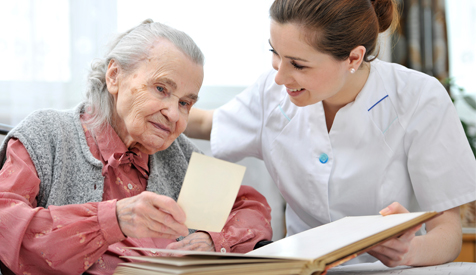Alicia Verhovitz, M.A., CCC-SLP
What is Vocal Hygiene?
Vocal hygiene is a term used to describe habits and routines used to support a healthy and strong voice. Just as good oral hygiene can help protect your teeth as you age, vocal hygiene can help you preserve a strong, resonant voice.
Vocal Hygiene Tips
1. Drink More Water: Try a minimum of eight 8 oz glasses of water or other noncaffeinated non-acidic beverage per day, avoid consumption of alcoholic beverages. (NOTE: please speak with your medical provider to ensure consumption of a higher volume of water will not impact any medications you are currently taking.)
Read More
Tags:
Speech,
Language,
Communication,
Voice,
talking,
Speech therapy
Read More
Tags:
Speech,
Language,
Communication,
Support,
Stroke,
Caregiving,
Brain Injury,
talking,
Communication Access,
Speech therapy,
Stroke recovery,
Aphasia,
Primary Progressive Aphasia
Aphasia is a language disorder resulting from an injury to the brain, such as a stroke or head trauma. The outcome of aphasia varies significantly from person to person. The most predictive indicator of long-term recovery is initial aphasia severity, along with the lesion site (location of damage to the brain) and the size of the lesion
Read More
Tags:
Language,
Communication,
Stroke,
Caregiving,
Brain Injury,
talking,
Communication Access,
Speech therapy,
Stroke recovery,
Aphasia,
Primary Progressive Aphasia
Communicating with someone recovering from a stroke or maintaining skills after a neurodegenerative diagnosis may be difficult. Changes in communicative abilities can be either expressive (the ability to speak or communicate) or receptive (the ability to understand spoken or written information), leading to breakdowns in communication. Any changes in communication can lead to feelings of frustration, isolation, or distress. We offer some fun summer activities to help practice word-finding and repair communication breakdowns. These activities require little if any, materials or preparation to engage!
Read More
Tags:
Speech,
Language,
Communication,
Stroke,
Brain Injury,
talking,
Speech therapy,
Stroke recovery,
Aphasia
Take your time when speaking. Speak at your own pace. Even if your communication partner is speaking quickly, set your pace and take your time. Your message is important and deserves to be heard.
Read More
Tags:
Speech,
Language,
Communication,
Support,
Stroke,
Caregiving,
Brain Injury,
talking,
Communication Access,
Speech therapy,
Stroke recovery
Communicating with someone after they have had a stroke, brain injury, or other illness resulting in communication difficulties can be challenging. These difficulties can be either expressive (the ability to speak or communicate) or receptive (the ability to understand spoken or written information), leading to breakdowns in communication. Any changes in communication can lead to feelings of frustration, isolation, or distress. Making a few changes in the way you communicate can make a world of difference!
Read More
Tags:
Speech,
Language,
Communication,
Stroke,
Caregiving,
Brain Injury,
talking,
Speech therapy,
Stroke recovery
In 2022, Brain Injury Awareness Month highlights #MoreThanMyBrainInjury by bringing awareness to some brain injury facts and statistics from the Brain Injury Association of America (BIAA).
Read More
Tags:
Speech,
Language,
Communication,
Brain Injury,
talking,
Communication Access,
Speech therapy,
Stroke recovery
As a caregiver, it is easy for us to overlook our own physical, mental and emotional needs as we care for others. This can quickly lead to feeling burned out, which would not be beneficial for us or our loved ones.
Read More
Tags:
Communication,
Support,
Caregiving
Preparing to go home after a hospital stay is never easy, especially after having a stroke. It can be a very overwhelming process with new challenges in thinking, memory, and mobility. The length of your hospital stay after a stroke can range anywhere from a few days to months depending on the severity of the stroke and the support system in place at home. There are many feelings associated with going home, excited to be back home along with feelings of anxiety or worry.
Read More
Tags:
Speech,
Language,
Communication,
Support,
Stroke,
Brain Injury,
talking,
Speech therapy,
Stroke recovery
Welcome to the first of a blog series on stroke recovery resource information from Cleveland Hearing & Speech Center (CHSC). Topics of the series include first action steps following a stroke, benefits of speech therapy, communication strategies, tips for caregivers, and much more.
Read More
Tags:
Speech,
Language,
Communication,
Support,
Stroke,
Caregiving,
Brain Injury,
Voice,
talking,
Speech therapy,
Stroke recovery
















